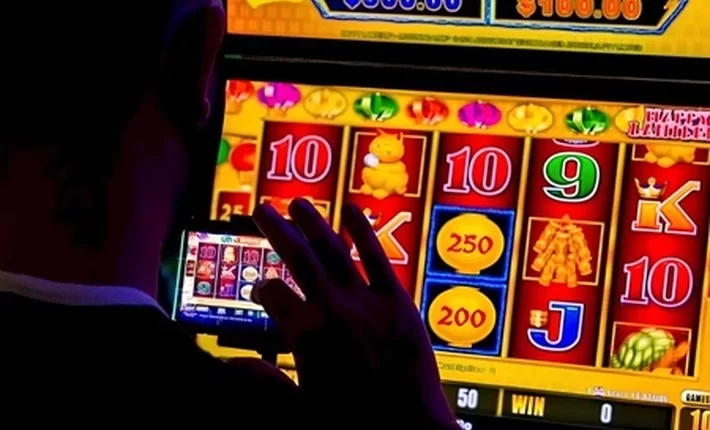Government’s Firm Steps to Eradicate Online Gambling to the Roots
By: Clara Diah Wulandari)*
The government’s firm steps in eradicating online gambling show a real commitment to protecting society from the negative impacts of this illegal activity. Online gambling, which is now increasingly widespread by utilizing digital technology, is not only a threat to economic stability, but also to the social order of society.
Under the direction of President Prabowo Subianto, the government continues to strengthen cross-agency coordination to address this problem to its roots. Not only law enforcement, but also various institutions such as the Ministry of Communication and Digital (Kemkomdigi), the Financial Services Authority (OJK), and other related institutions are actively involved.
As a comprehensive effort, the government has not only blocked online gambling sites, but also cut off their financial channels through dormant accounts and affiliates that often become places for illegal transactions. The Ministry of Communication and Digital has even deleted millions of accounts and sites that continue to emerge with new identities.
This effort is not easy, but concrete steps such as providing account checking facilities and efforts to educate the public about the dangers of online gambling are starting to show positive results. This significant change requires an active role from all of us, because the fight against online gambling is not only the government’s responsibility, but also a shared obligation to protect the future of the nation’s next generation.
Coordinating Minister for Political, Legal and Security Affairs Budi Gunawan underlined the president’s directive not to hesitate in eradicating corruption and other crimes, including online gambling. This instruction emphasizes the urgency of firm and integrated action from all elements of government. On the other hand, Kemkomdigi has worked hard to delete millions of online gambling accounts since 2017.
However, despite successfully removing more than 5.3 million accounts by the end of 2024, this threat continues to re-emerge with various new modes. This is a reminder that eradicating online gambling is not only a technical matter, but also requires ongoing education and supervision efforts.
The Ministry of Communication and Digital (Komkomdigi) is also actively combating online gambling by deleting related content and accounts. Director of Media Management of the Directorate General of Public Communication and Media, Nursodik Gunarjo, reminded the public not to be tempted by online gambling advertisements that often infiltrate social media.
With one click, users’ personal data can be recorded and used to target similar ads. Although Komkomdigi has removed more than 5.3 million accounts since 2017, challenges remain as perpetrators continue to adapt to new patterns. 2024 saw a spike in cases with 3.6 million accounts related to online gambling successfully handled, three times more than the previous year.
This phenomenon also shows the dark side of digitalization. Online gambling is addictive, locking players in a cycle of addiction that is difficult to stop even though they are aware of the impact. Ironically, Komkomdigi data shows that children under the age of 10 have also been exposed to this activity. In addition, the productive age group to the elderly are the main targets, showing how massive the penetration of online gambling is in various levels of society.
Efforts to eradicate online gambling are increasingly intensive by involving the Financial Services Authority (OJK). OJK emphasizes the need for vigilance against bank accounts used as a means of illegal transactions. Proactive steps in the form of blocking more than 8,000 accounts and coordination with other institutions such as Bank Indonesia and the Online Gambling Eradication Task Force have been carried out.
In fact, dormant accounts that have the potential to be used for illegal activities are also closely monitored. This approach shows that eradicating online gambling is not only about closing digital access but also cutting off the flow of funds that are the backbone of its operations.
The government’s seriousness is also seen from the involvement of the Coordinating Minister for PMK, Muhaimin Iskandar, who considers online gambling as a form of mass fraud with false promises. He emphasized that online gambling erodes the purchasing power of the lower class who are the main targets. For this reason, he urged Komkomdigi not only to block sites but also to increase the digital literacy of the community so that they are able to recognize and avoid this threat.
Given the steps that have been taken, eradicating online gambling requires a more comprehensive approach. Education is one of the important keys, because the public needs to understand the dangers that lurk from this activity. Collaboration between the government, law enforcement, financial institutions, and the public is expected to be able to create a healthier and safer digital ecosystem for all parties.
The journey to eradicate online gambling is not easy. These criminals continue to innovate to find loopholes to continue operating. However, with strong synergy between the government, law enforcement, financial institutions, and the community, there is still hope to end this practice. An invitation to the community to be more vigilant, not easily tempted by the lure of instant profits, and actively report suspicious activities is the key to the success of this effort.
Ultimately, the government’s firm steps in eradicating online gambling are a real form of protection for its people. Not only stopping crime, but also building a stronger foundation for society in the digital era. Let’s support this effort together, because only together can we create a better future, free from the shadow of online gambling.
)* The author is a contributor to the Ruang Baca Nusantaraa
